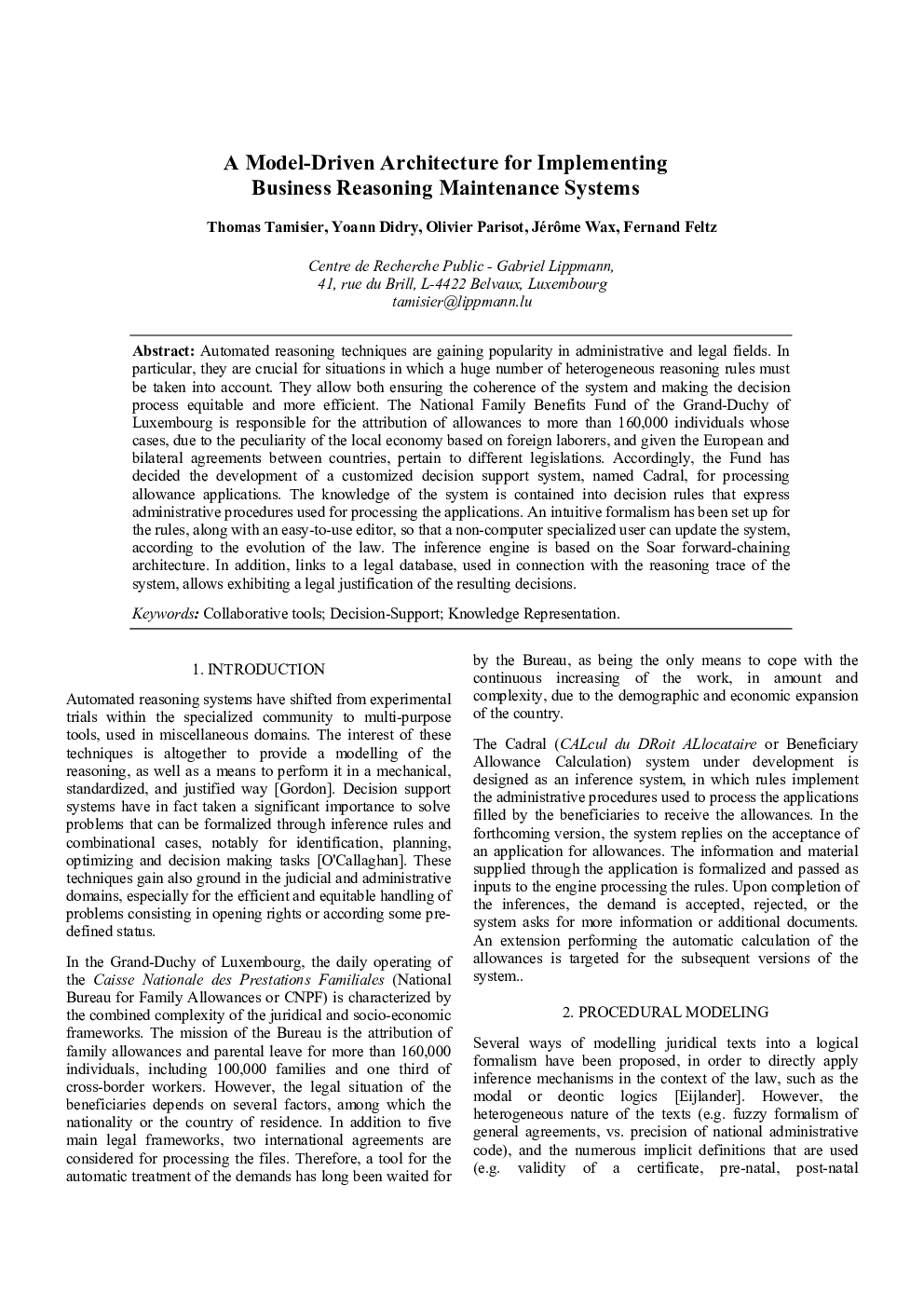| Article ID | Journal | Published Year | Pages | File Type |
|---|---|---|---|---|
| 719584 | IFAC Proceedings Volumes | 2010 | 5 Pages |
Automated reasoning techniques are gaining popularity in administrative and legal fields. In particular, they are crucial for situations in which a huge number of heterogeneous reasoning rules must be taken into account. They allow both ensuring the coherence of the system and making the decision process equitable and more efficient. The National Family Benefits Fund of the Grand-Duchy of Luxembourg is responsible for the attribution of allowances to more than 160,000 individuals whose cases, due to the peculiarity of the local economy based on foreign laborers, and given the European and bilateral agreements between countries, pertain to different legislations. Accordingly, the Fund has decided the development of a customized decision support system, named Cadral, for processing allowance applications. The knowledge of the system is contained into decision rules that express administrative procedures used for processing the applications. An intuitive formalism has been set up for the rules, along with an easy-to-use editor, so that a non-computer specialized user can update the system, according to the evolution of the law. The inference engine is based on the Soar forward-chaining architecture. In addition, links to a legal database, used in connection with the reasoning trace of the system, allows exhibiting a legal justification of the resulting decisions.
